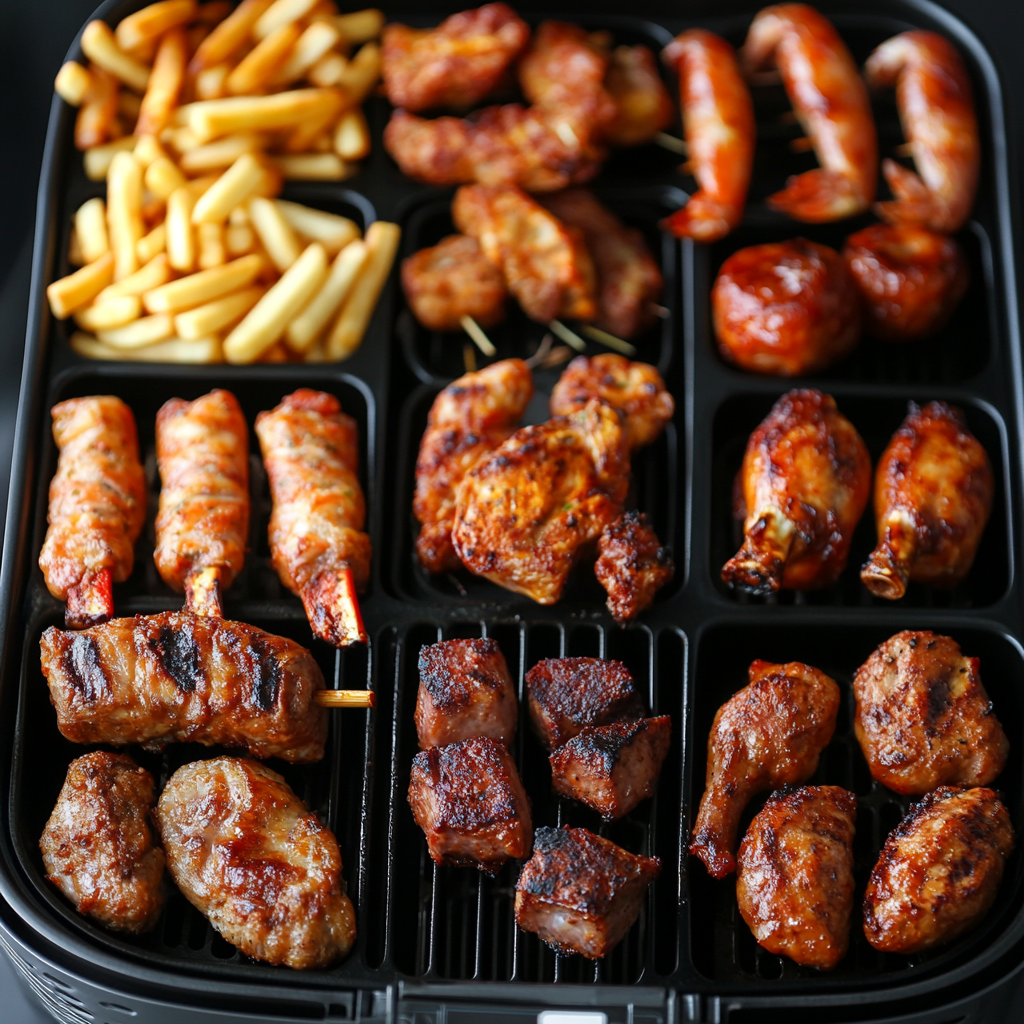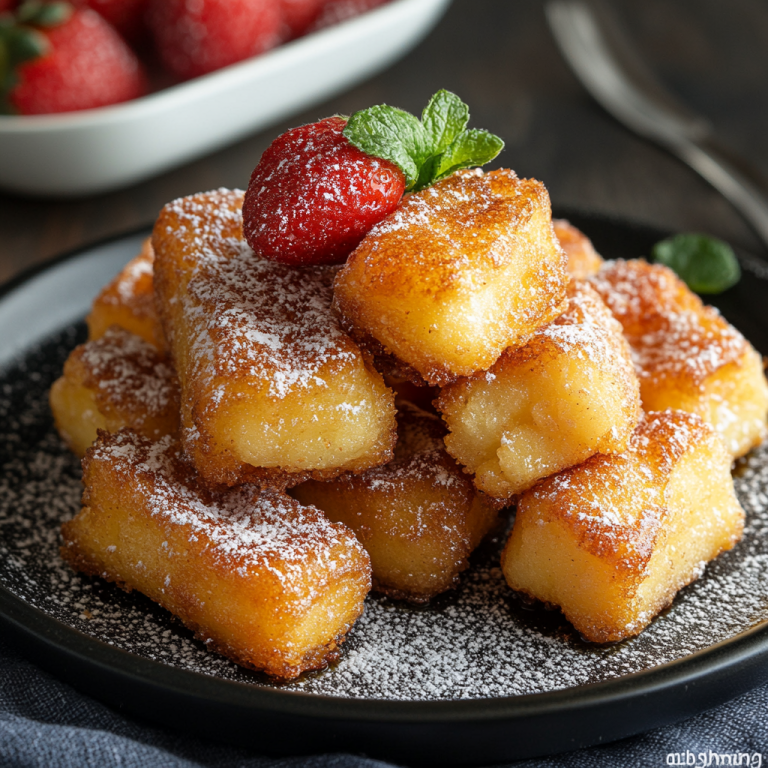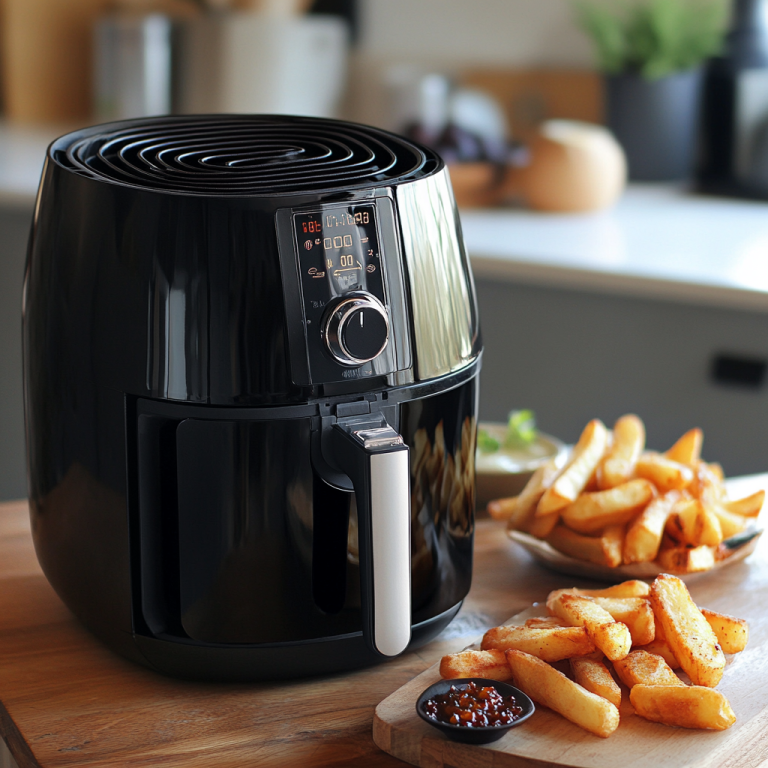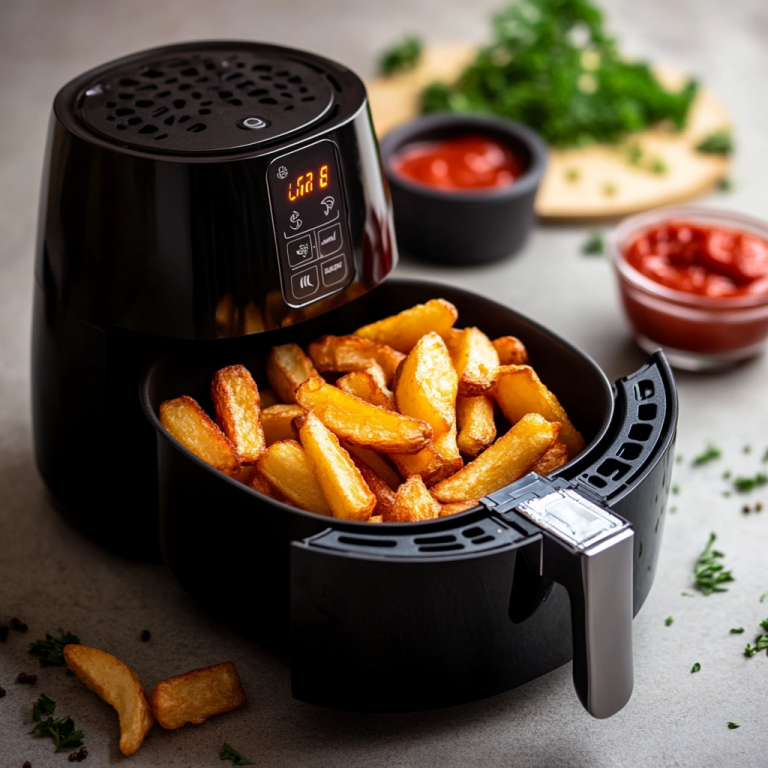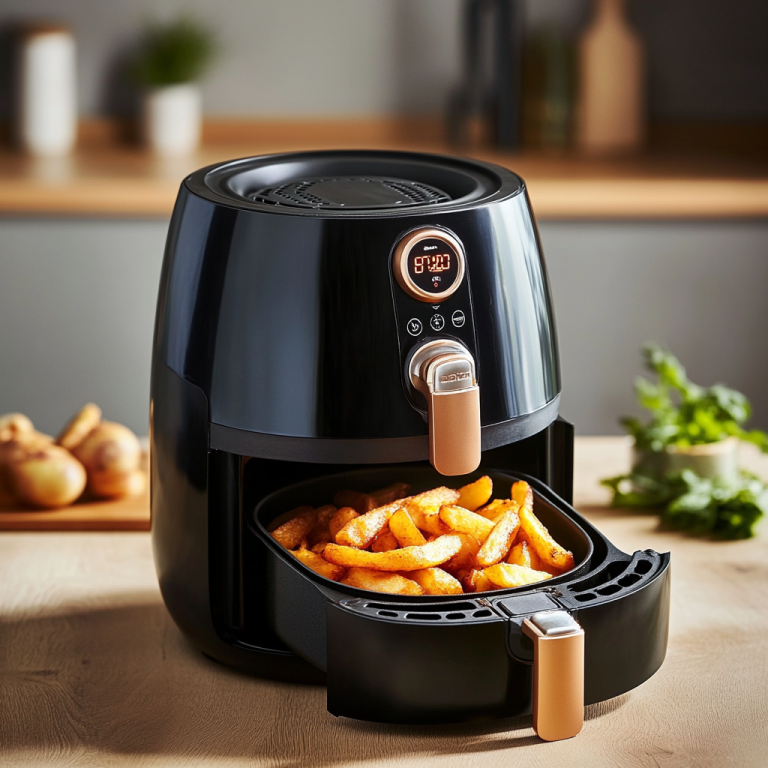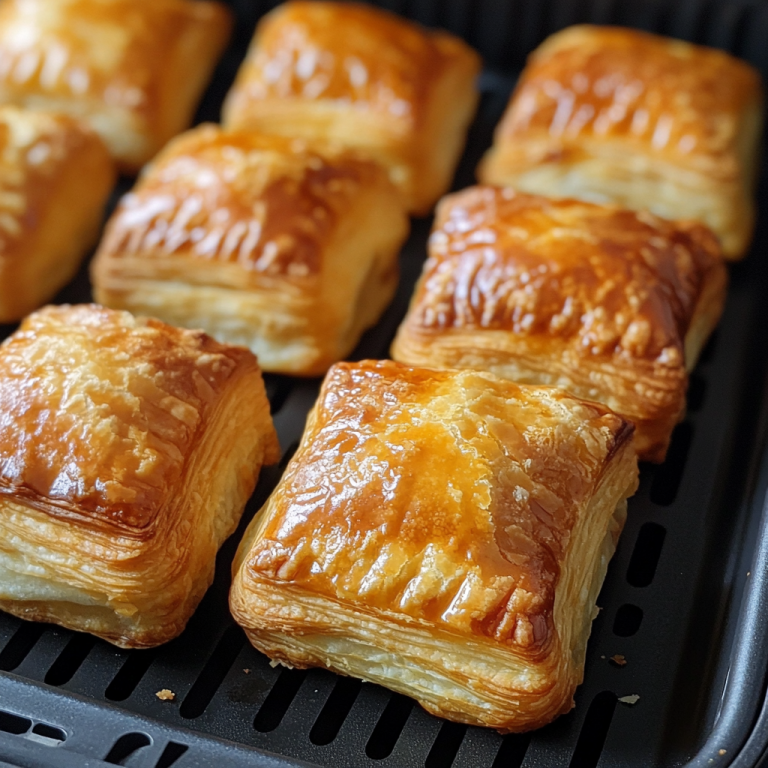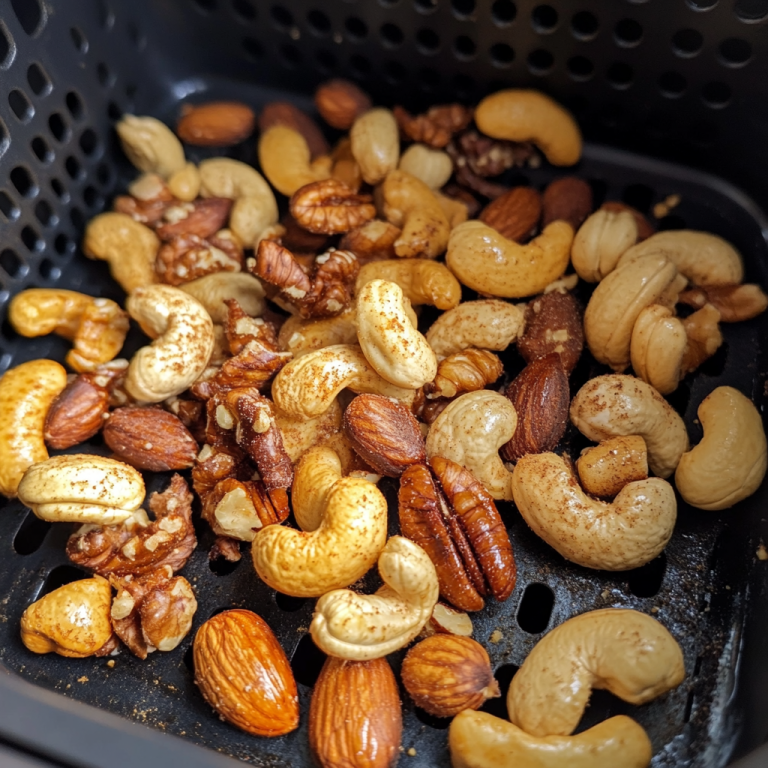Air Fryer Temperature Chart: Essential Cooking Guide
Air fryers have transformed the way we cook, offering a healthier alternative to traditional frying with crispy, delicious results. Understanding the role temperature plays in achieving that perfect meal is crucial. This article explores the ins and outs of air fryer temperature from what an air fryer is and how it works to why temperature matters for cooking times and results. A handy temperature chart for various foods will be provided, along with essential tips for adjusting settings and common pitfalls to avoid. Get ready to elevate your air frying game!
Understanding Air Fryer Temperature
Understanding air fryer temperature is essential for achieving optimal results with this increasingly popular kitchen appliance, which is designed for healthy cooking. By mastering the appropriate temperature and timing for various food types, including meat, vegetables, and snacks, individuals can ensure a crispy texture and enhanced flavour retention while maximising cooking efficiency. A comprehensive cooking guide should include a temperature chart and cooking times specific to different food categories, assisting users in streamlining meal preparation and consistently enjoying delicious outcomes.
What is an Air Fryer and How Does it Work?
An air fryer is a versatile kitchen appliance that employs convection cooking technology to circulate hot air around food, resulting in a crispy texture without the need for excessive oil. This innovative cooking method facilitates low-fat preparation and offers an efficient approach to preparing a variety of meals in a timely manner. By utilising a heating element in conjunction with a powerful fan, this appliance ensures even heat distribution, allowing food to cook thoroughly while retaining moisture and achieving the desired crunch. An air fryer accommodates various cooking techniques, including roasting, baking, and grilling, positioning it as an excellent, healthier alternative to traditional frying methods. Additionally, it promotes energy efficiency by reducing cooking time and minimising electricity consumption, enabling individuals to enjoy their favourite dishes with significantly less guilt. Whether one is preparing vegetables, meats, or even desserts, the air fryer enhances flavours while considerably reducing unnecessary fats.
Why Temperature Matters
Temperature is a crucial factor in air frying, significantly affecting cooking times and the overall outcomes of various dishes. A thorough understanding of the nuances related to cooking temperature will enhance the air frying experience, ensuring that meats are cooked to the optimal internal temperature while vegetables maintain their moisture and flavour, ultimately achieving the desired golden brown finish.
Impact of Temperature on Cooking Time and Results
The impact of temperature on cooking time and results in air frying is considerable, as different foods necessitate varying frying temperatures to achieve optimal doneness. Adjusting cooking times in accordance with temperature settings is crucial for ensuring that meats remain juicy and vegetables are tender yet crispy. A comprehensive understanding of this relationship can lead to improved culinary outcomes, as precise cooking adjustments enhance the flavours and textures of dishes. For example, poultry may require a higher temperature to achieve a crispy skin while retaining moisture, whereas more delicate items, such as fish, are best cooked at lower temperatures to prevent drying out. Therefore, adhering to accurate timing and temperature guidelines can transform standard recipes into exceptional meals. Home cooks are encouraged to experiment with these variations, incorporating practices such as periodic checks to assess doneness, which ultimately aids in achieving consistently excellent results in the kitchen.
Air Fryer Temperature Chart
A comprehensive air fryer temperature chart serves as an invaluable reference for individuals seeking to master the art of air frying. It provides clear temperature ranges for various food types along with their corresponding cooking times. This essential cooking times chart ensures that meals are prepared efficiently and consistently, resulting in perfectly cooked dishes on every occasion.
Cuisinart Food Processor, Mini-Prep 3 Cup, 24 oz, Brushed Chrome and Nickel, DLC-2ABC
$19.22 (as of 21:24 GMT +00:00 - More info)Temperature Ranges for Different Foods
Understanding the appropriate temperature ranges for various foods is essential for achieving optimal results in air frying, as these settings differ depending on food categories such as meats, vegetables, and snacks. Familiarity with these ranges will streamline the cooking process and enhance flavour profiles. For example, poultry should ideally reach an internal temperature of 74 C to ensure safety and tenderness, whereas red meats, such as beef and pork, typically benefit from a range of 63 C to 71 C, depending on the desired level of doneness. In contrast, vegetables generally perform best when cooked at slightly lower temperatures, around 190 C, which facilitates caramelisation while preserving their crispness. Snacks, including frozen chips and breaded items, tend to achieve optimal results at temperatures between 200 C and 220 C, providing a satisfying crunch. Understanding these specific internal temperatures and their conversions will assist in planning a diverse menu that is both delicious and safe.
Tips for Using the Air Fryer Temperature Chart
Utilising the air fryer temperature chart effectively can greatly enhance cooking outcomes by offering vital recommendations for adjusting cooking time and temperature according to specific food items. By comprehending how to interpret the chart, one can adeptly navigate the intricacies of air frying, thereby ensuring safety and achieving consistently excellent results.
How to Adjust Cooking Time and Temperature
Adjusting cooking time and temperature is essential for optimising the air frying experience and achieving perfectly cooked meals. By adhering to specific cooking guidelines and recognising that different types of ingredients may necessitate unique settings, individuals can customise their recipes for improved results. When experimenting with various foods, factors such as thickness, moisture content, and the type of protein can significantly influence the outcome. For example, thicker cuts of meat may require a longer cooking duration at a lower temperature to ensure even cooking without burning the exterior. Conversely, delicate vegetables often benefit from shorter cooking times at higher settings to preserve their vibrant colours and crisp texture. By carefully considering ingredient compatibility and making adjustments based on personal preferences, individuals can refine their recipe development skills and enhance their culinary proficiency.
Common Mistakes and How to Avoid Them
Identifying common mistakes in air frying, such as overcooking or undercooking food, can significantly enhance one s cooking techniques and outcomes. By comprehensively understanding these pitfalls and acquiring strategies to avoid them, individuals can improve their air frying experience and ensure consistent results with each meal.
Overcooking, Undercooking, and Other Issues
Overcooking and undercooking are among the most prevalent issues encountered when using an air fryer, both of which can result in undesirable outcomes and raise food safety concerns. Achieving precision in cooking is essential for addressing these challenges and ensuring that meals are both palatable and safe for consumption. Mastering the techniques of air frying not only enhances flavour but also significantly contributes to food safety by eliminating the risks associated with harmful bacteria often present in improperly cooked foods. When meals are overcooked, they may become tough and dry, adversely affecting the overall dining experience. In contrast, undercooked foods can pose serious health risks. To mitigate these cooking challenges, it is imperative to regularly monitor internal temperatures and make necessary adjustments. Understanding the operational characteristics of your air fryer can also facilitate easier cleaning up, allowing for more time to enjoy the meal rather than attending to residual mess.
